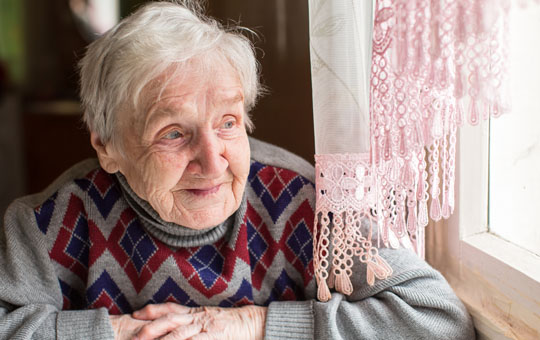The recent continuing exponential increase in mental health problems in children and young people is associated with the pandemic, lockdown, illness, losses, separations, economic hardship. These stressors have resulted in increasing tension and stress within the family, for parents and children, increasing physical and emotional abuse, and an exponential rise in mental health responses.
Research on Adversity, Trauma and Mental Health
Recent research has demonstrated the consistent finding that Adversity in Childhood - Adverse Childhood Experiences ACE - forms of child maltreatment, and associated parental mental health, substance abuse, family violence, are associated with traumatic toxic stress responses, and an increased risk of overlapping common mental health disorders of childhood, anxiety disorders, internalizing disorders (depression and suicidality) and disruptive behaviour. Adversity may well be associated with over 50% of mental health presentation is in children and young people. Stress associated with adversity may be tolerable when time limited and support is available, toxic when stress is pervasive, and there is a lack of support. Toxic stress responses become biologically embedded, and trigger a spectrum of mental health problems including PTSD and internalising and externalising disorders. In turn, these responses result in children and young people being referred to mental health, or offending services.
Adversity, Trauma Mental Health Across Services
School can be a source of protection for children and young people, but can also be a source of stress . There is evidence of stress associated presentations – suicidal, self -harming, disruptive behaviour, somatic pains being much higher in term time than the holidays. Young people who self- harm have often been exposed to family violence and cyber-bullying. Offending services see young people with have high levels of adversity in their backgrounds and associated disruptive conduct disorders. Children identified as subject to abuse and neglect and who become looked after to protect them have ofter been subject to extensive adversity, and present with a spectrum of overlapping disorders, attachment disorders PTSD and associated internalising and externalising mental health responses. Asylum Seeking young people meet extreme adversity during their journeys, and have extensive trauma associated disorders. Children with Autistic Disorders and Intellectual Disorders may evoke considerable parental stress, and abuse, because of communication difficulties there may be significant difficulties in identifying the impact of trauma. Some children on the autistic spectrum were relieved to be at home, not having to attempt to make social relationships, not being bullied and excluded.
The implication of an exponential rise in adversity, and trauma associated mental health responses across services.
CAHMS are overwhelmed. Self-harming, suicidal behaviour, anxiety, low mood, eating disorders, disruptive disorders increase. Children are received into care because parents were not able to cope.
What is the solution – there need to be wholesale changes. Increasing the number of Cahms Services, teams in school, improving parenting across-the-board can make a significant difference to children and young people’s mental health. In addition, there is a need for practitioners across services to develop basic skills in meeting the needs of children and young people with Toxic Stress Adversity triggered mental health responses.
Modular Common elements approaches
The modular Approach for children’s anxiety depression trauma and conduct described by Chorpita and colleagues (MATCH-ADTC) may be the most effective solution. The key common elements of intervention were distilled across over 1000 mental health research interventions, to provide a library of interventions which can be trained to practitioners across services at all levels of experience. Our own development of the Hope for Children and Families Intervention Resources based on the MATCH-ADTC approach in addition distilled common practice elements from across the field of effective interventions for childhood adversity childhood and maltreatment.
A library of modular interventions arranged around the Assessment Framework was developed which targets children and young people with adversity and overlapping trauma associated mental health needs. A stepwise approach to intervention with scripts, guidance notes, hand-outs, and activities was introduced that can be used by a wide range of practitioners, selecting modules to fit the complex needs of the children they are working with. (Bentovim and Gray, 2016, 2017).
Guides were developed on Engagement and Goal setting (Bentovim et al., 2017) -constructing a profile of the child’s strengths and difficulties, and developmental needs, Addressing emotional and traumatic responses, and Working with children and young people: Addressing disruptive behaviour (Eldridge, 2017)
Related guides -Working with child sexual abuse- (Eldridge, 2016). Modifying abusive and neglectful parenting’ (Bentovim, 2017a) ‘Promoting positive parenting’ (Roberts, 2016); ‘Promoting attachment, attuned responsiveness, and positive emotional relationships’ (Gates and Peters, 2017); and,’Promoting children and young people’s health, development and well-being’ (Bentovim, 2017b). Working with Families (Jolliffe, 2016)
Practitioners trained across services.
Practitioners and their managers across education, health, social care, offending services for looked after children, children with special needs developmental disabilities, can be trained to deliver core mental health interventions for many children who present with adversity and trauma associated mental health responses. Children and young people with the most concerning mental health problems can be referred to specialist services.
Piloting and implementation in a variety of context demonstrated that practitioners at all levels of skills and experience across the field of health, education, social care and offending services could benefit and develop intervention skills.
Who Should Attend?
All practitioners and managers across children’s services – social care, health, education and offending services







